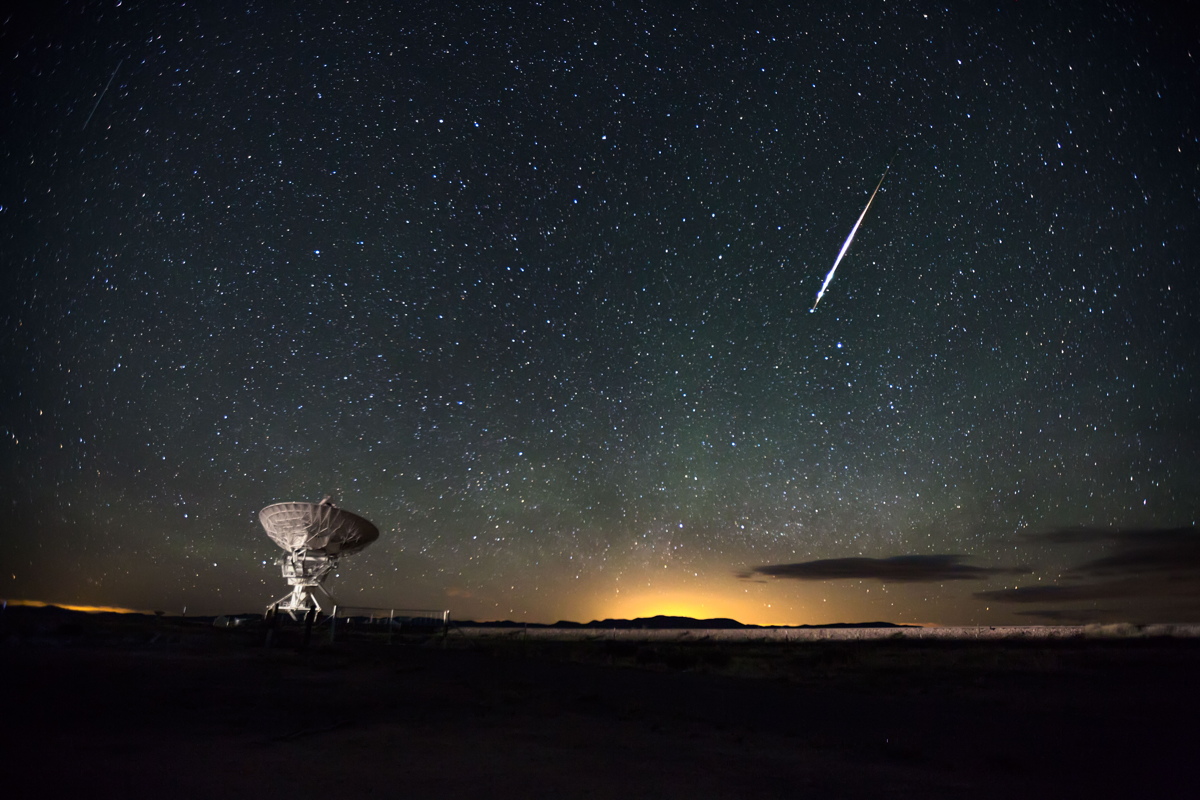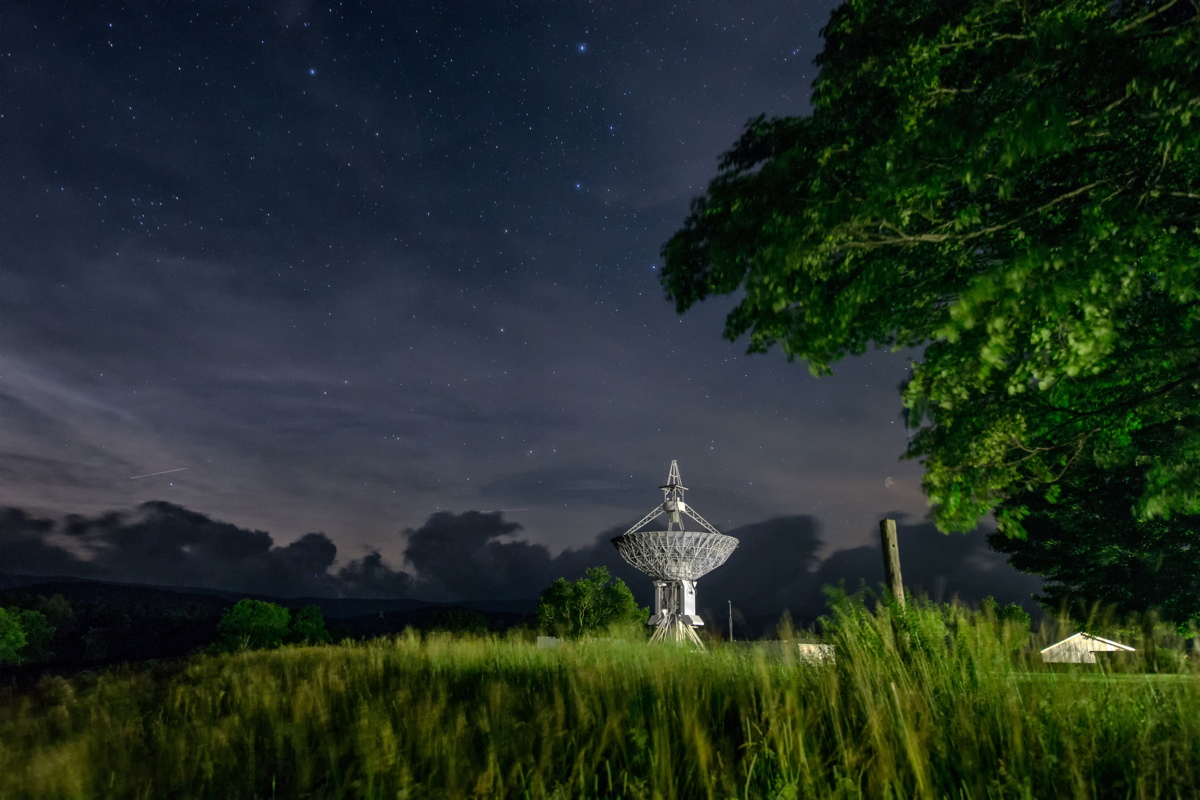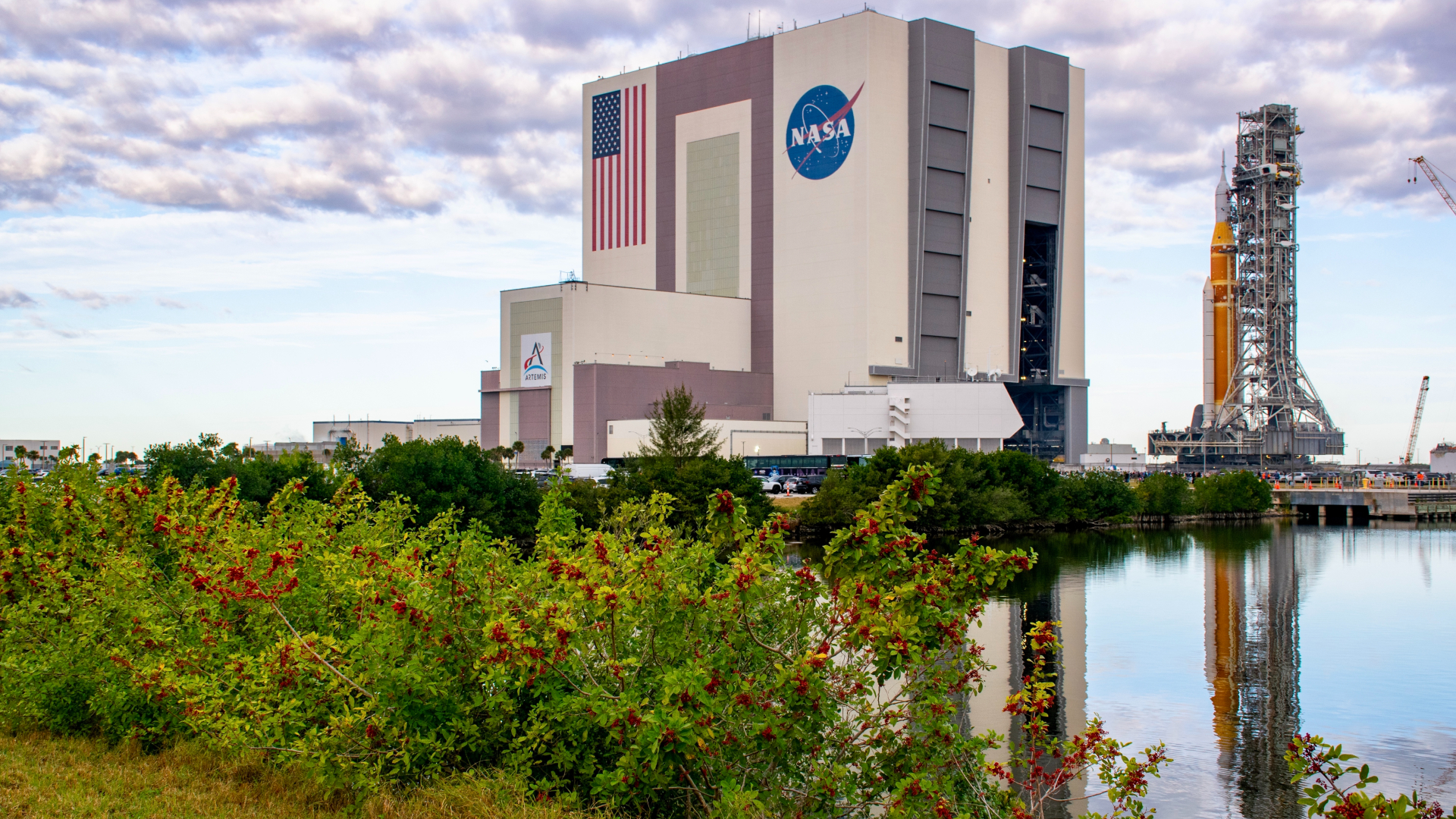Alien-Hunting SETI Telescopes Boogie in Spectacular 'Dishdance' Video
A stunning new time-lapse video shows off the tireless movement of radio astronomy facilities used to search for aliens across the universe.
Telescope dishes swivel and clouds and stars rush by in the video, which is called "Dishdance" and was produced in part to help document the effects of light pollution. The video focuses on SETI Institute (Search for Extraterrestrial Intelligence) and facilities either currently or previously used by that organization. The time lapse is a part of the Skyglow project, a campaign to raise awareness of light pollution helmed by the astrophotographers Harun Mehmedinovic and Gavin Heffernan. You can view the new video here.
SKYGLOW: DISHDANCE from Sunchaser Pictures on Vimeo.
Facilities featured in the video include the Karl G. Jansky Very Large Array near Socorro, New Mexico; Owens Valley Radio Observatory in Owens Valley, California; and Green Bank Telescope in West Virginia.
"The large radio telescope at Green Bank is where scientists first attempted to 'listen' to [the] presence of extraterrestrials in the galaxy," the team wrote in the video's description.
"Very Large Array was featured in the movie 'Contact' (1997), while Owens Observatory was featured in 'The Arrival' (1996)," they added. "The huge meteorite streaking across the sky above Very Large Array (2:40) is from the Aquarids meteor shower."
The Skyglow project by Heffernan and Mehmedinovic had a successful Kickstarter campaign earlier this year, and crowdfunding continues on www.skyglowproject.com.
Breaking space news, the latest updates on rocket launches, skywatching events and more!
So far, the project has raised more than $75,000 to create an astrophotography book and time-lapse video "exploring North America's starscapes and the growing threat of light pollution," the website states.
If backers bring the total up to $100,000 by February 2016, the team plans to print 2,000 additional books to give to schoolchildren and organizations in light-polluted areas of North America.
That stretch goal is important, the group wrote on its website, "so the youth of today can see the magic of the night skies and the need to protect them for all future generations."
Follow Elizabeth Howell @howellspace, or Space.com @Spacedotcom. We're also on Facebook and Google+. Original article on Space.com.

Elizabeth Howell (she/her), Ph.D., was a staff writer in the spaceflight channel between 2022 and 2024 specializing in Canadian space news. She was contributing writer for Space.com for 10 years from 2012 to 2024. Elizabeth's reporting includes multiple exclusives with the White House, leading world coverage about a lost-and-found space tomato on the International Space Station, witnessing five human spaceflight launches on two continents, flying parabolic, working inside a spacesuit, and participating in a simulated Mars mission. Her latest book, "Why Am I Taller?" (ECW Press, 2022) is co-written with astronaut Dave Williams.


